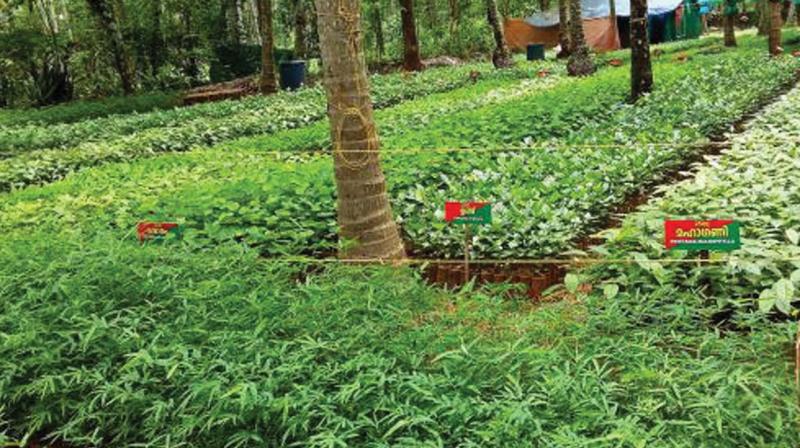Kozhikode: Carnivorous plants find larger market
Carnivorous plants derive some or most of their nutrients by trapping and consuming insects and rodents.

Kozhikode: Plants that eat mosquitoes, bugs and even rats and frogs are not a myth. Wilson Varghese, a businessman, owns a collection of rare ‘carnivorous plants’ grown on the terrace of his house at ‘Vinay Gardens,’ Kallayi. Many plant lovers from different parts of the state visit him daily to buy these endangered species.
Carnivorous plants derive some or most of their nutrients by trapping and consuming insects and rodents.
Mr Wilson has grown ‘Nepenthes,’ a genus of carnivorous plants, also known as ‘Pitcher plant’ or ‘Monkey cup,’ familiar to Indians only through science textbooks. Nepenthes are climbers that often grow several meters in length and transform into a tube-shaped trap which produces a fluid that will attract the insects and trap them.
Mr Wilson started growing Nepenthes 15 years back with the help of a friend who imported the plant from Thailand. By taking the seeds from the plant, Wilson grew more of them. Since pollination was not possible, through cross pollination, Wilson successfully created 23 varieties of the plants and 100 hybrids.
Wilson told DC, “it is difficult for such plants to grow here as the climate in Kerala is not suitable for them. They cannot withstand high temperature. Most of the plants can wither away due to negligence, but with patience and care, I have been growing them for many years”.
Dr. C. Satheesh Kumar, scientist at Jawaharlal Nehru Tropical Botanical Garden and Research Institute (JNTBGRI), Thiruvananthapuram, said: “Nepenthes Khasiana is the only variety seen in India. It is found in Khasi and Meghalaya. The tribes of north-east use the enzyme of the plant for treating cataract, night blindness, stomach troubles, diabetes, gynaecological problems and even arthritis and rheumatic diseases”
When Nepenthes entered the market and a lot of gardening enthusiasts started visiting him, Wilson sold the plants at prices ranging from Rs.500 to Rs 3000. He also exports them to other countries by getting orders online.

